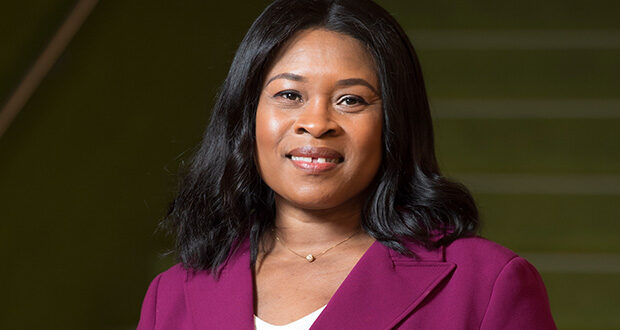A nurse educator has reflected on the profession's evolving role on International Nurses Day.
Deputy head of Monash University's nursing school Associate Professor Helen Rawson said nurses are no longer just seen as caregivers, but as leaders who make a significant impact on their patients' lives.
"You're never 'just a nurse'," she said.
"We are leaders – leading care at the bedside, education, research and policy.
"Nurses are highly skilled and educated healthcare professionals."
International Nurses Day serves as a tribute to the remarkable contribution of British nurse Florence Nightingale but as a recognition of nurses' vital role in worldwide healthcare.
Nursing Review spoke with associate professor Rawson about how the profession has changed over the years and what it might look like in the future.
NR: Why is it important that we celebrate international nurses day?
HR: It's crucial to celebrate International Nurses' Day as it brings global attention and recognition to the vital and fundamental role that nurses play in society's care and wellbeing.
Nurses comprise the largest proportion of the healthcare workforce and perform a myriad of tasks.
So, it's essential to highlight their work.
Plus, the pandemic emphasised the significance of healthcare and the essential role of nurses.
As we transition through the pandemic, nurses continue to do their important work.
Why did you become a nurse?
My nursing journey began when I was in high school.
I worked as an auxiliary nurse in a nursing home in England, the equivalent of a personal care worker.
It was an unconventional Saturday job, as most people worked at places like McDonald's or the shops on High Street.
I am also a second-generation nurse, as my mother, who came from the West Indies, moved to England to train as a nurse.
So, a passion for nursing runs in the family.
I went on to earn my nursing degree in London and continued working at a major hospital in the same city.
After focusing on working with older patients in hospitals, I transitioned into clinical work in residential aged care in Australia as a registered nurse.
Alongside my clinical work, I continued my education, earning a Master's degree and eventually a PhD and becoming involved in research.
My research focuses on the care and wellbeing of older adults wherever they receive care – whether in the hospital, community, or residential care settings.
It's essential to have the older adult at the centre of their care, involving their families or significant person, and ensuring that the workforce caring for them is appropriately prepared and supported.
If you compare the nursing role to when your mother was a nurse and your current position, what stands out to you?
So many things have changed!
Even when I was doing my nursing degree – when my mom trained as a nurse, they were not educated at a degree level.
She underwent hospital training, and then when I completed my nursing training, I earned a degree.
Nurses are now able to pursue leadership roles, including senior leadership roles.
So, the nursing profession stretches from being at the bedside with patients or people receiving care right through to being prominent in policy in government and the United Nations.
There are many differences between our experiences.
One of the things is critical thinking and understanding the importance that we as a profession have to instigate change, make decisions, and have an impact on policies.
People now recognise that our role is vast in terms of the care we provide.
It's so much more than just nurses being carers; nurses are also leaders.
They may lead at the bedside, in healthcare, academia, research, policy development, or even at the government level.
People often think of nurses as just being at the bedside, but their role is much more diverse and equally important.
And society values nurses for what they do.
Society does understand that nurses are involved in every aspect of someone's life, from the moment they are born to when they go through their lives.
Whether an individual goes on to have children or comes to the end of their life, nurses are involved everywhere throughout our life trajectory.
People engage with nurses when they engage with healthcare. As a result, there is an understanding of the different things that nurses do.
Do you think today's multifaceted nurse role could be perceived as daunting for aspiring nurses?
I don't think it's daunting at all.
In fact, I believe it's quite the opposite.
Becoming a nurse opens up a world of possibilities in terms of the different areas in which one can work and impact patients, those receiving care, and the nursing profession as a whole.
There's a vast number of opportunities available for nurses.
I don't believe this is daunting for new graduates or students. Instead, it can be eye-opening to see the many different paths that nurses can take.
Speaking from personal experience, as a young girl working in a nursing home to becoming a nursing student in London, and now as a Deputy Head of one of the highest-ranked nursing schools in the world, I have come to appreciate the many different opportunities available to nurses.
How will the global nursing profession change in the future?
The nursing role in the future will continue to grow and have a significant impact on the lives of everyone.
As professionals, we need to ensure we remain at the forefront, focused, and involved in decision-making processes related to our profession and healthcare.
It's crucial that we have a seat at the table.
The International Council of Nurses theme for this year "Our Nurses, Our Future" which aims to reinforce the importance of nurses as an essential and integral part of society.
Do you have an idea for a story?Email [email protected]
 Nursing Review The latest in heathcare news for nurses
Nursing Review The latest in heathcare news for nurses

